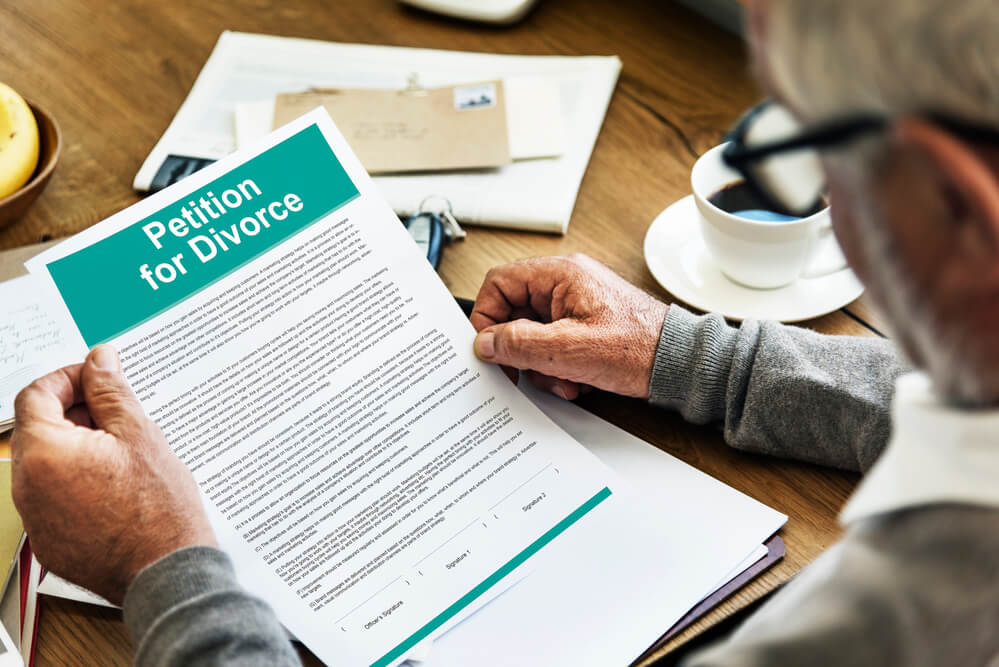All You Need to Know About Florida Divorce Trials
This article covers the subject of Florida Divorce trials.
Most divorces never get to trial. But if you and your spouse cannot settle all of the issues in your divorce you can take it to court. If you do, a court judge will decide based on their judgement.
What a Divorce Trial is like in Florida
Before the judge makes any decisions, each spouse has the opportunity to testify. And each will have the opportunity to give evidence.
A Florida Divorce Trial is not that much different than any other type of trial. The primary exception, however, is that with divorce court trials in most jurisdictions, all issues are determined by a judge. There is no jury in a divorce trial like this.
What Happens BEFORE the Trial
There are a few things that must take place before you can even consider going to court over your divorce:
#1: Filing the Petition for Dissolution of Marriage:
The divorce process begins when one spouse files a petition for dissolution of marriage with the court.
That petition for dissolution is what people normally think of when they envision “getting served with divorce papers”. The petition outlines the reasons for the divorce, requests for property division, spousal support and child custody arrangements.
#2: Service of Process:
The other spouse must be served with the petition and a summons to appear in court. The served spouse then has 20 days to respond to the petition.
Should you be the one that is being sued for divorce, engage an attorney right away. But here is what the Florida Supreme Court provides for answering a Petition for the Dissolution of Marriage so you’ll know what to expect. And what you might expect from your spouse.
#3: Discovery Process:
Both parties exchange information about assets, income, liabilities, and other relevant information. This includes requests for production of documents, written interrogatories, and depositions.
Interrogatories are simply a set of written questions used by attorneys to get answers aboutanything that may be divided during the divorce.
#4: Pre-Trial Hearings:
The court may hold several pre-trial hearings to address any issues or disputes that arise during the discovery process. The court may also order mediation to try and settle the case before trial.
Usually, by the time the divorce has progressed to the point of trial, mediation has already been attempted. But demanding further mediation is up to the judge.
Both parties will line up witnesses, gather evidence and generally proceed much like trials you’ve see on TV or the movies.
Trial Preparation: Both parties prepare for trial by gathering evidence, lining up witnesses, and preparing arguments.
Divorce Court – Going to Trial
Florida Divorce Trials start like any other trial with each spouse’s lawyer presenting opening statements. Notably, the spouse who filed for divorce first gets the “first say” in the opening statements.
After opening statements, the presentation of witnesses and evidence begins.
Once again, the spouse who filed for divorce presents their case first. They have the first opportunity to call all of their witnesses to testify and present their evidence.
In many Florida Divorce Trials, the only witnesses will be each spouse and possibly a forensic accountant.
More complicated cases or ones that include child custody may involve more witnesses. Depending on the jurisdiction and judge, each spouse may also get the opportunity to present rebuttal witnesses and rebuttal evidence.
Similar to jury trials, Florida Divorce Trials also end with closing arguments. Normally, the spouse who was first to file for divorce is also first in closing arguments. And will get a final opportunity to give rebuttal arguments.
However, unlike jury trials, there will rarely be any “verdict” announced at the end of trial. Instead, the divorce court judges will almost always issue a written ruling and explanation of their decisions on each contested issue.
The End Result
Many judges strive to release their written rulings quickly. But some judges to take several months or even over a year to issue their written decision.
And going to court is much more expensive that working through a fair settlement through mediation or negotiation between attorneys.
Trials are usually appropriate only when the difference between a fair settlement and the other spouse’s settlement position justifies the time and expense involved.
Furthermore, there is a value to avoiding trials, as sometimes divorce court judges make honest mistakes or render unfair decisions.
When this happens, it is necessary to continue paying lawyers to pursue a divorce court appeal, a topic that is covered here in more detail.
The team at Bruce Law is certainly experienced and capable of bringing a divorce to trial, but the time and cost normally makes this the last option.
- Review this with one of our attorenys- Schedule a Conversation
- Call today to schedule a time to talk to an attorney (561-286-8275)




